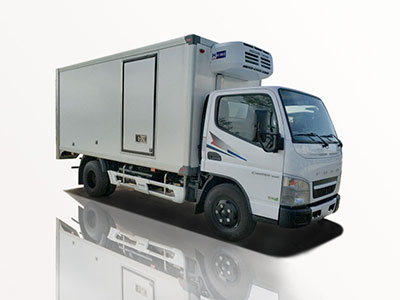Introduction
Box trucks with reefers are essential in the transportation and logistics sector, specifically for businesses dealing in perishable goods. These trucks provide temperature-controlled environments that ensure products stay fresh during transit. Whether you are a business owner in need of such vehicles or a logistics provider looking to understand the ins and outs of these trucks, this guide will cover everything from the basic functionalities to critical considerations when using box trucks with reefers.
What is a Box Truck with Reefer?
A box truck, also known as a cube truck, is a vehicle with a distinct cargo area separate from the driver’s cabin. When combined with a reefer unit, this truck can maintain specific temperature ranges, making it ideal for transporting perishables such as food, pharmaceuticals, and other temperature-sensitive items.
The Components of a Box Truck with Reefer
- Box Body: The enclosed cargo area that provides protection from external elements.
- Refrigeration Unit: A specialized cooling system responsible for regulating temperature inside the cargo area.
- Chassis: The underlying framework that supports the truck’s body and components.
- Loading Dock or Ramp: An essential feature that aids in loading and unloading cargo efficiently.
Types of Refrigerated Box Trucks
1. Standard Refrigerated Box Trucks
These are the most common type, equipped with basic refrigeration systems that can maintain temperatures usually between 32°F to 50°F.
2. Frozen Box Trucks
These trucks are designed for transporting products that need to be kept in frozen conditions, typically around -10°F to 0°F.
3. Multi-Temperature Box Trucks
Ideal for businesses that need to transport multiple types of goods at different temperature ranges, these trucks have separate compartments for various products.
Advantages of Using Box Trucks with Reefers
1. Temperature Control
The primary benefit of a reefer is its ability to control temperature, which is crucial for preserving the quality of perishable goods.
2. Increased Product Shelf Life
By maintaining appropriate temperatures, businesses can extend the shelf life of their products, reducing waste and maximizing profitability.
3. Versatility in Transportation
Box trucks with reefers can be utilized across various industries, including food service, pharmaceuticals, and floral logistics.
Choosing the Right Box Truck with Reefer
1. Assess Your Cargo Needs
Determine the types of products you will be transporting and their specific temperature requirements.
2. Evaluate Truck Size
Box trucks come in various sizes; choose one that fits your cargo volume without causing unnecessary fuel expenses.
3. Consider Fuel Efficiency
Look for trucks that offer better fuel efficiency to save on operational costs.
4. Review Refrigeration Unit Specifications
Ensure the reefer unit has sufficient power and capability to maintain the required temperature for your cargo.
5. Check Maintenance and Repair Options
Choose a truck from a manufacturer that offers reliable maintenance services and support for its refrigeration equipment.
Operational Tips for Box Trucks with Reefers
1. Regular Maintenance
Perform regular inspections and maintenance of both the truck and the refrigeration unit to ensure optimal performance.
2. Monitor Temperature Control
Invest in temperature monitoring systems to keep track of conditions inside the cargo area during transit.
3. Proper Loading Techniques
Utilize correct loading methods to prevent air circulation issues, which can result in temperature inconsistencies.
4. Use Insulated Packaging
Consider using insulated containers or packaging for added protection against temperature fluctuations.
Common Industries Using Box Trucks with Reefers
1. Food and Beverage Industry
Restaurants, supermarkets, and food distributors heavily rely on refrigerated trucks to maintain the freshness of their products.
2. Pharmaceutical Industry
Healthcare providers and pharmaceutical companies transport vaccines and medications that require strict temperature controls.
3. Floral Logistics
Florists and wholesalers use these trucks to deliver fresh flowers and other perishable arrangements to customers.
Box Trucks with Reefers: Costs and ROI
1. Initial Investment
The initial cost of acquiring a box truck with a reefer unit can be significant, often ranging from $40,000 to $100,000 depending on specifications.
2. Operating Costs
Consider expenses such as fuel, maintenance, and insurance when calculating total operational costs.
3. Return on Investment
A well-maintained box truck with a reefer unit can greatly enhance business efficiency and customer satisfaction, leading to increased sales and profitability.
Regulations and Compliance
1. Health and Safety Regulations
Familiarize yourself with local and national regulations concerning food safety, especially when transporting perishable goods.
2. Vehicle Inspection Compliance
Ensure your box truck meets all necessary inspection and repair standards to comply with transportation regulations.
3. Driver Training
Drivers should receive training on how to operate vehicles with reefers, including handling temperature controls and proper cargo management.
FAQ Section
1. What temperature range can a box truck with a reefer maintain?
Typically, a standard reefer can maintain temperatures between 32°F to 50°F for refrigerated goods, while frozen box trucks can maintain temperatures around -10°F to 0°F.
2. How often should I perform maintenance on my reefer?
Regular maintenance is recommended every 3-6 months to ensure the refrigeration unit is functioning correctly and efficiently.
3. Can I rent a box truck with a reefer?
Yes, many companies offer rental services for box trucks with reefers, which can be a cost-effective solution for short-term needs.
4. What are the common issues with box trucks with reefers?
Common issues can include temperature fluctuations, mechanical failures in the refrigeration unit, and improper loading leading to air circulation issues.
5. How do I improve fuel efficiency for my box truck?
Regular maintenance, smooth driving practices, and reducing excess load can significantly improve fuel efficiency.
6. Is insurance more expensive for refrigerated box trucks?
Insurance for refrigerated trucks may be higher compared to non-refrigerated trucks due to the additional equipment and high-value cargo typically transported.





